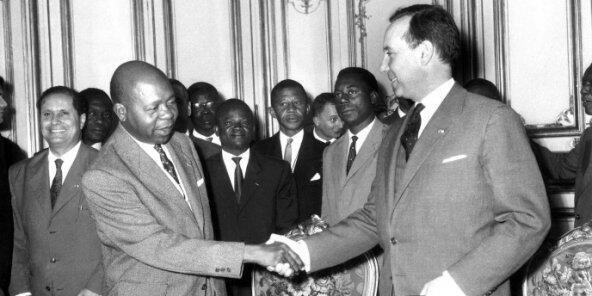Independent for 63 years and under the yoke of a kleptocratic dynasty since 1967, Gabon has just entered a new era of turbulence. The history of independent Gabon in fifteen key dates.
August 17, 1960: Independence
The gabon is the eighth African colony to gain independence. The official beginnings of French colonization date from the signing of an agreement between French Admiral Édouard Bouët-Willaumez and a local chief, authorizing the creation of a first trading post on the estuary of the Como River. Libreville, the future capital of the colony, was founded in 1849 and the appointment of the first French governor dates from 1886. Colonial exploitation of Gabonese territory began after the Second World War with the creation and establishment of large French concessionary companies responsible for to develop the forest and mining resources of the country.
Confronted with the rise of resistance against colonial exploitation across French Africa, Paris voted in 1958 the Franco-African Community project granting a great deal of room for maneuver to local elected officials. However, the Community very quickly turned out to be an ephemeral project with most of the Member States deciding to gain their independence. The independence of Gabon is proclaimed by Leon Mba, leader of the Gabonese Democratic Bloc, appointed Prime Minister. In 1961, Mba was appointed president, by having Parliament adopt a new Constitution abolishing the parliamentary system.
February 17, 1964 : A first coup attempt
On the night of February 17 to 18, the Gabonese soldiers overthrew Mba, at the instigation of his rival, the opponent Jean-Hilaire Aubame. Faithful ally of Libreville, Paris immediately dispatched its paratroopers who put an end to the coup and reinstated the ousted president in power.
November 28, 1967: End of the multiparty system
Shaken by the coup and undermined by illness, Léon Mba dies in a hospital in Paris. In accordance with the provisions of the Gabonese Constitution, its vice-president Albert-Bernard Bongo is appointed president. One of the first political acts of the new president is to abolish the multiparty system and to abolish all democratic freedoms. He imposes the Gabonese Democratic Party (PDG) as the only party and will rule the country with an iron fist.
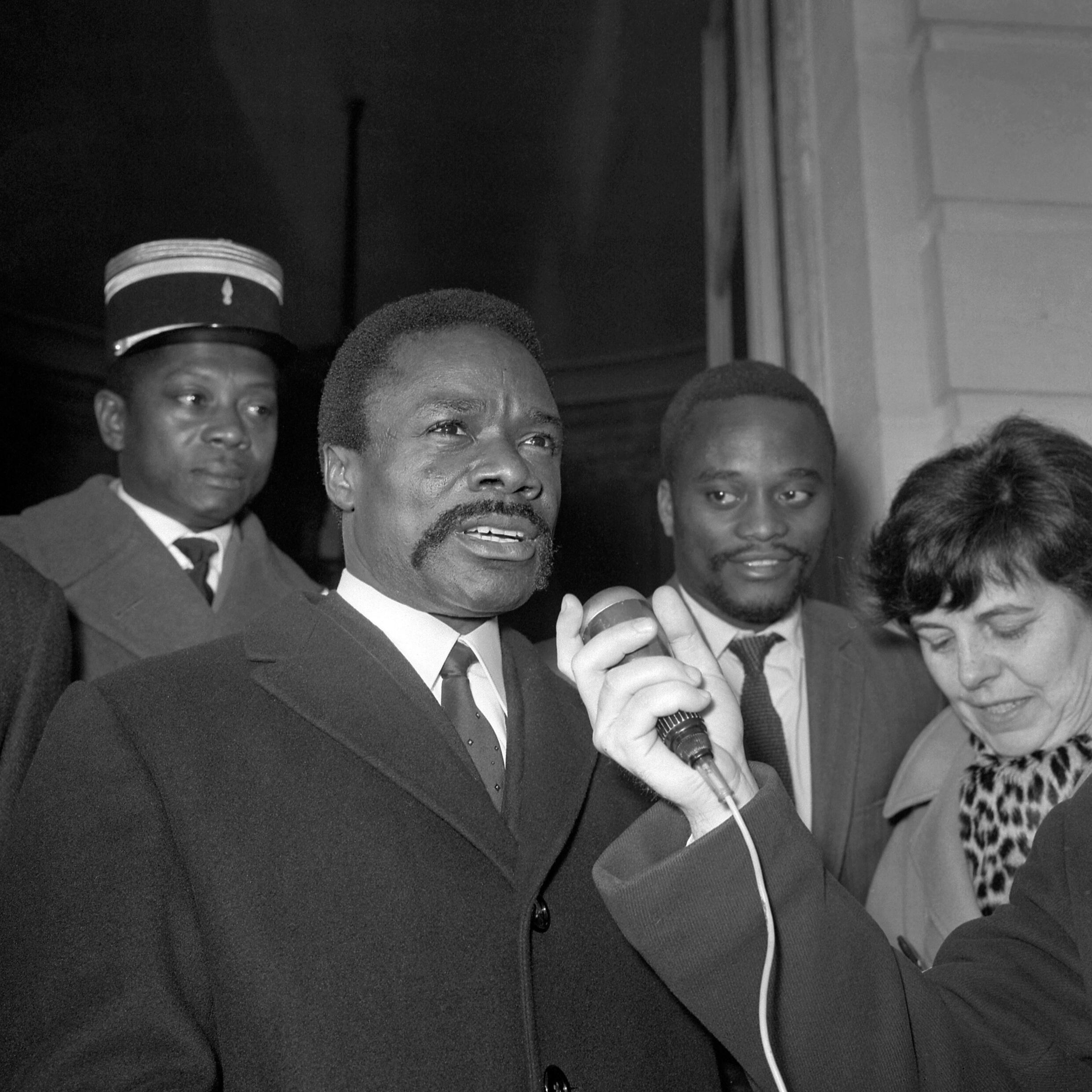
February 25, 1973 : Plebiscite
Sole presidential candidate, Albert Bongo is acclaimed with 99.8% of the vote. He also won the elections of 1979 and 1986. The man has meanwhile converted to Islam and has called himself since 1973 El Hadj Omar Bongo.
June 10, 1975 : Oil bonanza
On the strength of its oil windfall, Gabon has been a member of the Organization of Petroleum Producing and Exporting Countries (OPEC) since 1975. Libreville’s relations with OPEC would prove tumultuous. The smallest country in the group, it left the organization in 1995 due to the rejection of its request for a lowering of its membership fees to reflect its modest production level. Gabon joined OPEC in 1995 with the aim of participating in the multilateral negotiations underway at the time to raise world oil prices.
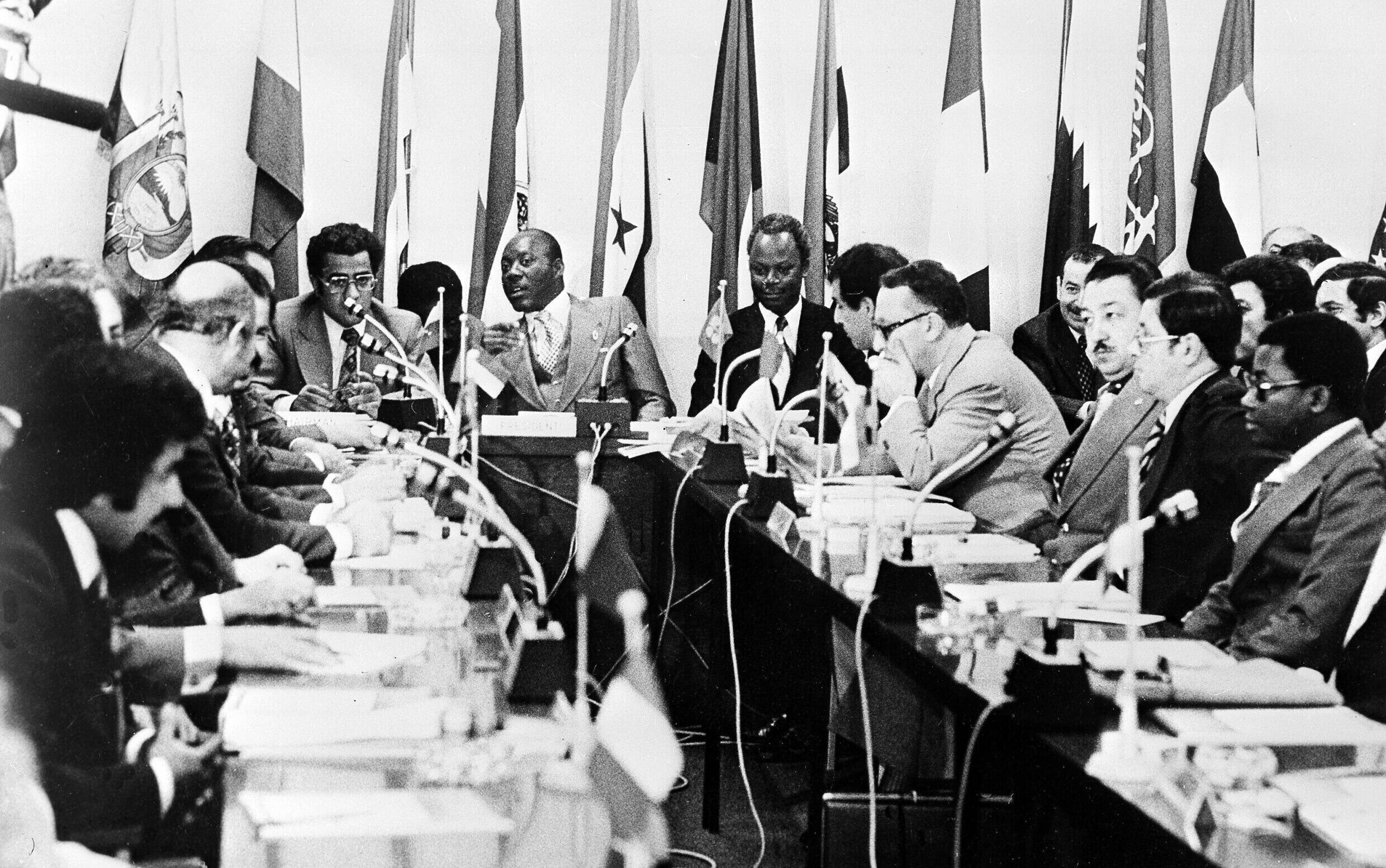
March 23, 1990 : National Conference
From January to April 1990, Gabon experienced serious social and economic unrest. Riots break out across the country. The insurrectional climate led to the opening of a national conference which ended on April 19. The delegates to the conference unanimously opt for the restoration of the multiparty system.
December 5, 1993 : Return to the multiparty system
The Gabonese took part in the first pluralist presidential election, but it was won by Omar Bongo, who returned in 1998 and 2005, facing a divided opposition.
June 8, 2009: Disappearance of Omar Bongo
Death of Omar Bongo in a private clinic in Barcelona, Spain.
June 16, 2009: The funeral
The deceased’s ties were close to France. He was attributed, with the Ivorian Houphouët-Boigny, the paternity of the famous “Françafrique”. Jacques Chirac and Nicolas Sarkozy attend the funeral which takes place on June 16, in Franceville (south-east of Gabon). She is the President of the Senate, Rose Francine Rogombewho acts as interim head of state and organizes an early presidential election in which she is not a candidate.
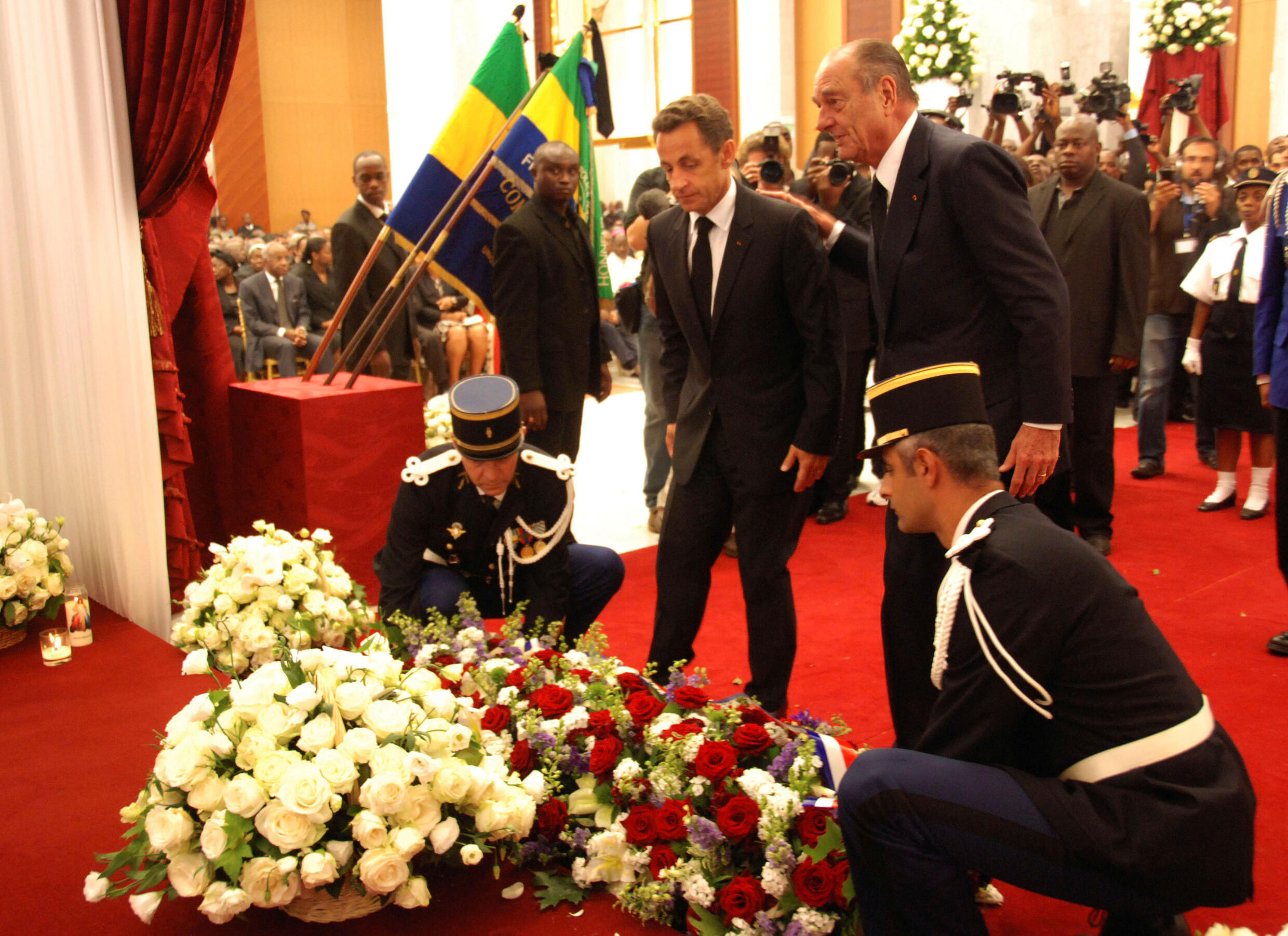
August 30, 2009 : Anticipated presidential
Ali Bongo Ondimba, son of Omar Bongo, has been nominated as a candidate by the PDG (ruling party) for the presidential election. His candidacy is supported by the barons of the regime and France in order to ensure the stability of the country. Ali Bongo is elected President of the Republic with 41.73% of the vote. He succeeds his father who remained in power for 41 years. But his election is contested by the opposition. Port-Gentil is shaken by post-election violence and looting, causing several deaths. Throughout his tenure, the legitimacy of this “ son of is regularly called into question, especially during the economic crisis experienced by the country from 2014-2015, following the collapse of oil prices. Protesters take to the streets of the capital, demanding the departure of Ali Bongo.
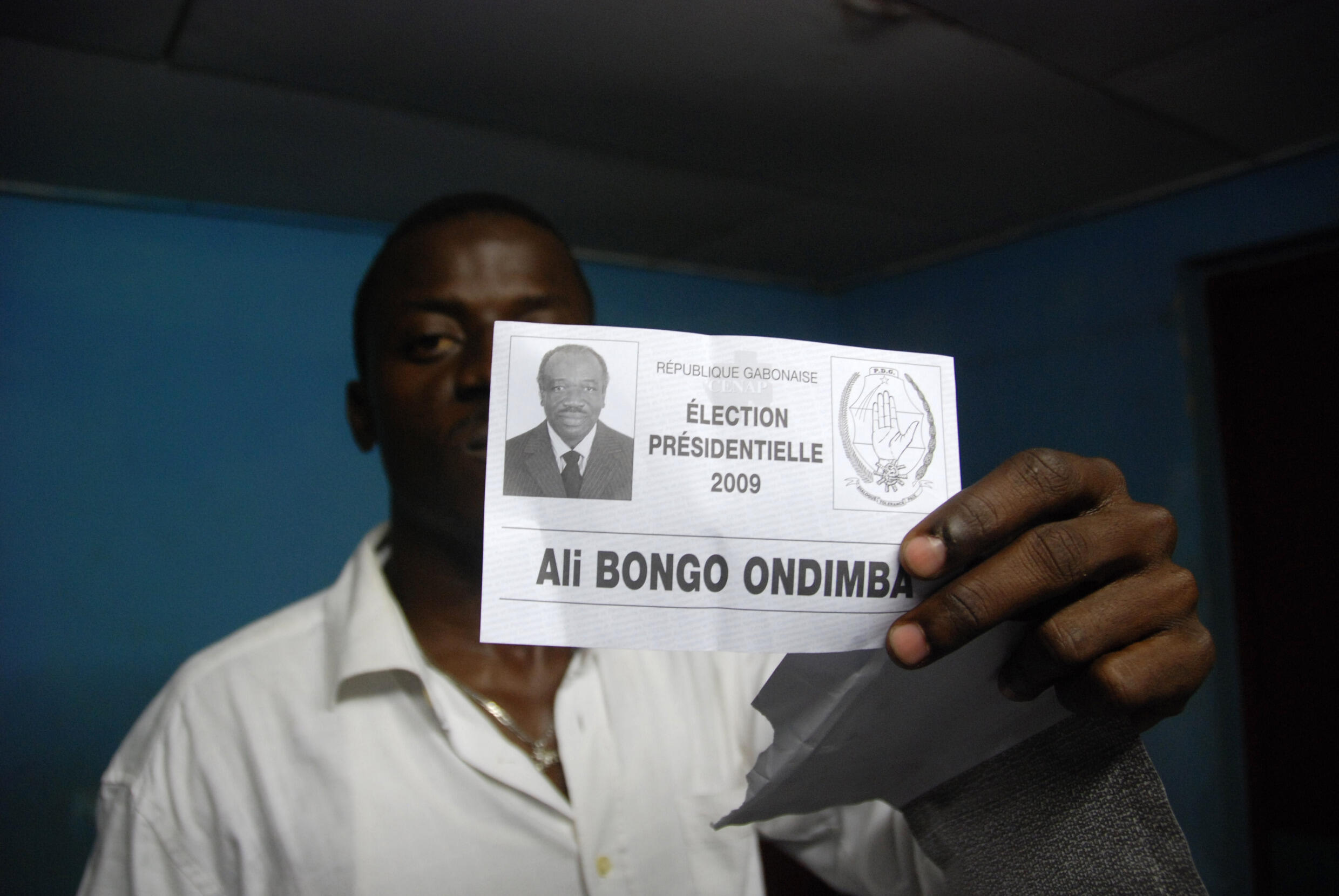
August 27, 2016: Re-election of Ali Bongo
Disputes over illegitimacy resurfaced when Ali Bongo was re-elected with the smallest margin of votes in 2016. His challenger Jean Ping alleges fraud, allegations which are also supported by civil society. The announcement of the re-election of the outgoing president provokes unprecedented violence in Gabon, with demonstrations repressed in blood and the National Assembly set on fire. The unrest kills, around thirty according to the opposition. However, declared the winner by the Constitutional Court, Ali Bongo was sworn in in September for a second seven-year term.
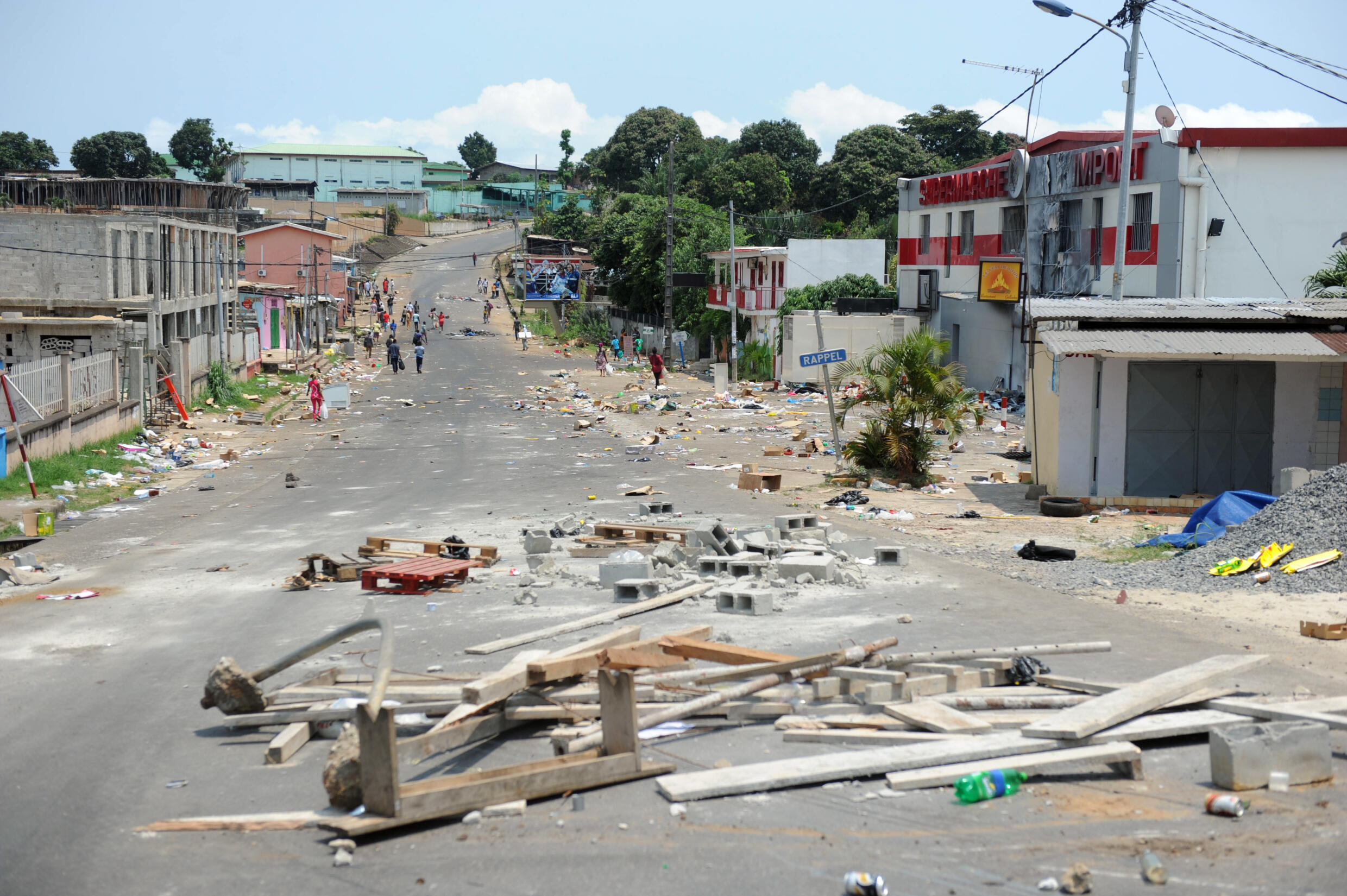
October 24, 2018: Ali Bongo’s illness
President Bongo is victim of a stroke during a trip to Saudi Arabia for an investment conference. After being hospitalized for more than a month in Riyadh, he was transferred to Morocco, he remained absent from the country for a total of ten long months. The Gabonese wonder if their president is still fit to govern.
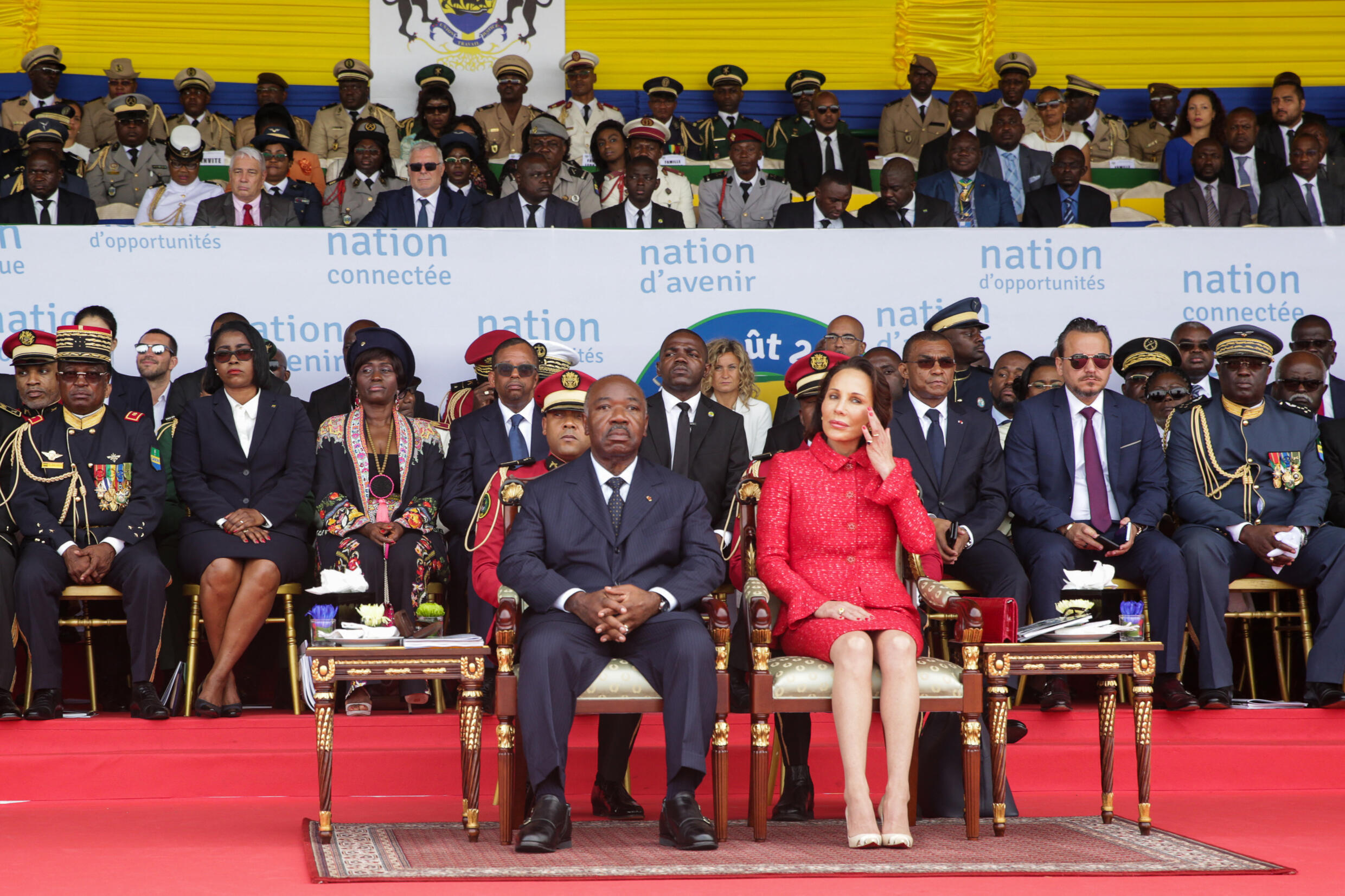
January 7, 2019 : New coup attempt
According to analysts, it is the frustration aroused by the lack of information in the country on the illness of the president, which would be one of the triggers of the attempted coup. The insurrection, led by a unit of mutinous soldiers, fails. The mutineers are arrested or killed.
August 26, 2023: Third term
One term too many? Although still suffering from the after-effects of his 2018 stroke, Ali Bongo is seeking a third term, after having Parliament vote on a revision of the Constitution reducing the presidential term from seven to five years and returning the ballot to a single round. This time he faces 18 suitors, including the former Minister of Education and Higher Education, Albert Ondo Ossaa consensual albeit late candidate from the main opposition parties.
August 30, 2023: End of the Bongo dynasty
Ali Bongo, the 64-year-old head of state, who had just been proclaimed winner of the August 26 presidential election and re-elected for a third term with 64.27% of the vote according to official results, is overthrown by a coup. In a statement on television, a group of a dozen soldiers announced that they had taken power in Gabon. They also claim to have put end to the regime in place “and canceled the results” truncated of the presidential election which has just taken place. Thus ended the Bongo dynasty, after 55 years of unchallenged power.
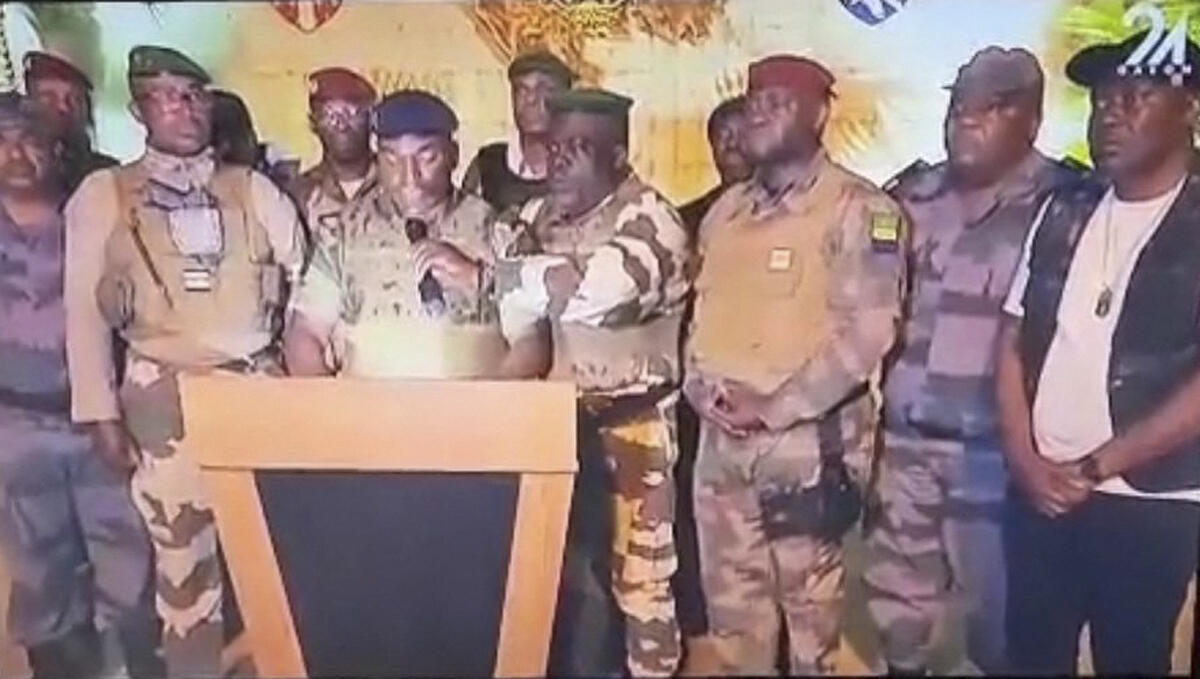
Read alsoThe birth of modern Gabon: in eight key dates
